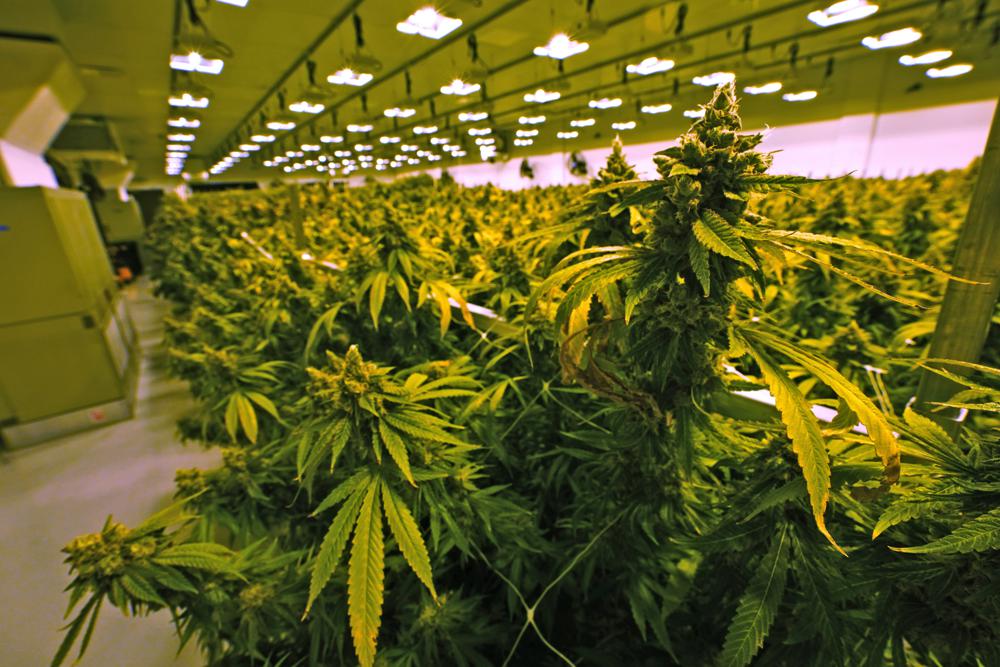
RICHMOND, Va. (AP) — As the Virginia General Assembly reaches the halfway point of this year’s session, one of the year’s most complicated issues — possible changes to the state’s new law legalizing recreational marijuana — has stalled in the GOP-controlled House.
Terry Kilgore, the chamber’s majority leader, said this week that he does not expect the House to vote on its own measures before the Tuesday deadline for each chamber to complete work on its own legislation. Instead, he said the caucus would wait for the Democrat-controlled Senate to send a bill over and “go from there.”
“We want to get it right. There’s a lot of regulation, enforcement … so there’s just a lot of questions, and you’re running out of time,” he said Wednesday.
Last year, when state government was under total Democratic control, lawmakers passed legislation that legalized adult possession of up to an ounce of marijuana and created a path for retail sales to begin in 2024. The bill passed in a chaotic rush, strictly along party lines, with no GOP support. But because the bill has a reenactment clause, lawmakers are scheduled to vote again this year on the complex regulatory structure needed to set up the retail marijuana market.
With adult possession legalized but no way to legally buy recreational marijuana in Virginia, both Republicans and Democrats have expressed support for moving up the date for retail sales to try to prevent growth in the illicit market. But the two sides do not agree on how to reinvest tax revenues from marijuana sales or on social equity provisions that would give advantages in the licensing process for marijuana businesses to people and communities that have been hurt by old marijuana laws.
The legislation passed last year called for 30% of tax revenues to go the Cannabis Equity Reinvestment Fund, which would funnel the money to predominantly minority communities disproportionately affected by the war on drugs. A bill proposed this year by Senate Minority Leader Tommy Norment that called for redirecting the money to the state’s general fund was quickly quashed by Senate Democrats.
Another bill sponsored by Republican Del. Michael Webert includes a provision that would redirect the tax revenue to a fund for rebuilding crumbling school buildings around the state.
The legislation, which appeared to be the main marijuana bill offered by House Republicans, also called for eliminating a provision in the 2021 law that calls for giving special consideration for marijuana business licenses to social equity applicants, including people convicted of marijuana crimes or members of their immediate families. And it would have slashed the overall tax rate on marijuana sales from 21% to 10%.
But Webert’s bill, along with several others drafted by House Republicans, have had no movement at all during the first four weeks of the session, a sign that the caucus has been unable to reach consensus.
Kilgore acknowledged concerns about the issue from some caucus members.
Last week, Speaker Todd Gilbert told The Associated Press, “The whole space is a bit of a mess right now.”
“The mess was not created by us,” added Gilbert, who now leads the chamber after Republicans retook it and swept Virginia’s statewide offices in the November election.
Other Republican bill sponsors and committee chairs did not respond to requests for comment from the AP.
Democratic Sen. Adam Ebbin, a lead architect of the 2021 law, is sponsoring two key pieces of Senate marijuana legislation this year. One bill would allow existing medical marijuana providers to begin selling recreational marijuana to adults a year earlier than the Jan. 1, 2024, date called for in the 2021 law. Among other things, the second bill calls for requiring cannabis retail stores to close by 9 p.m. and open no earlier than 8 a.m. and requiring the Cannabis Control Authority to come up with regulations by Jan. 1, 2023, instead of July 1, 2023.
Ebbin is also planning to incorporate a bill from Sens. Louise Lucas and Scott Surovell that would allow resentencing of people currently incarcerated for marijuana crimes.
Ebbin said he has had discussions with several House Republicans “in the hopes we can work out an equitable arrangement” on establishing the state’s retail marijuana market.
“I know there are members of the House on both sides of the aisle who would like to see the illicit market reduced and eventually even close to eliminated,” Ebbin said. “In that spirit, I’m hopeful we can work out a way for adults 21 and over to be able to access a tested, regulated, taxed product.”
JM Pedini, executive director of the Virginia chapter of the National Organization for the Reform of Marijuana Laws, said that if a reenactment bill is going to succeed during the current legislative session, “it will require major compromise.”